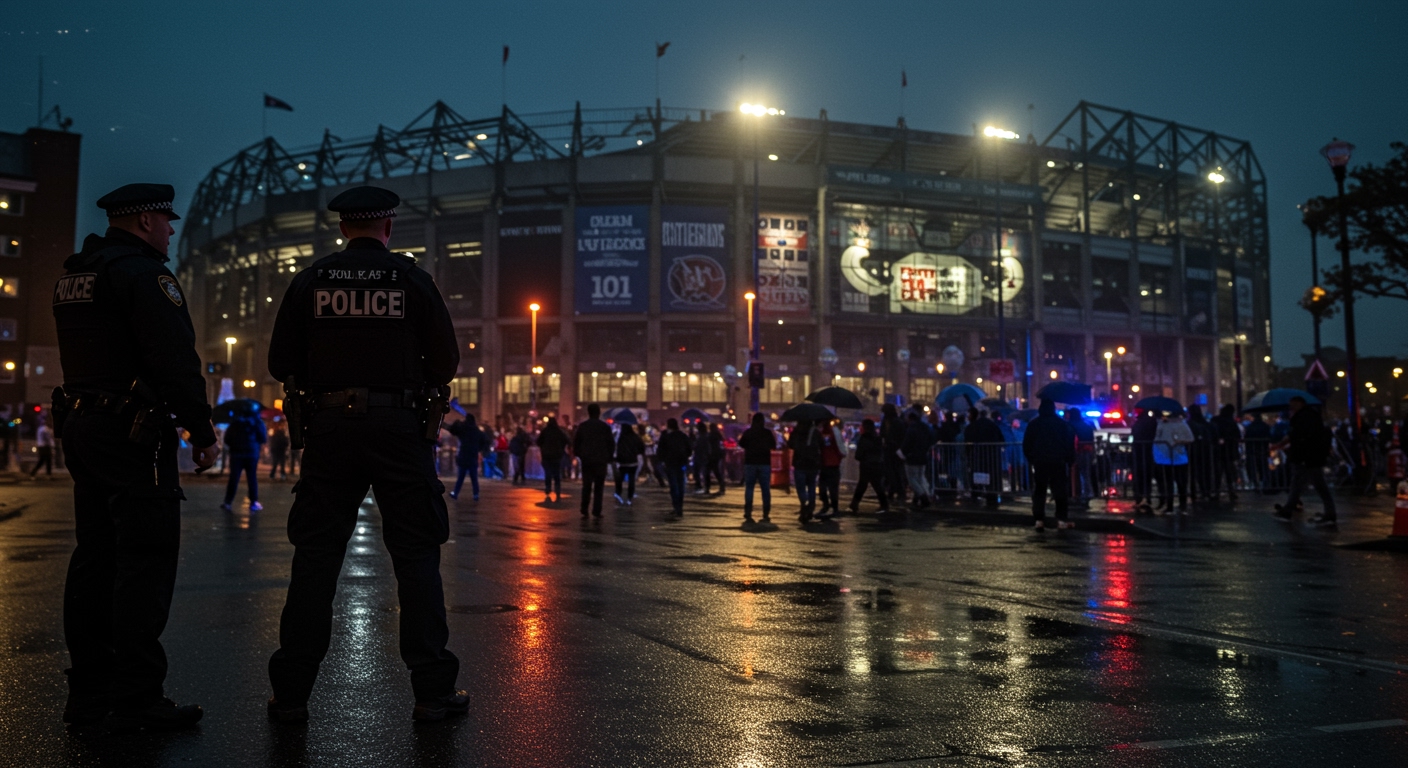LONDON – The head of UK football policing is calling for immediate government action to compel the country’s wealthiest Premier League football clubs to cover the substantial costs of policing matchdays currently funded by the public purse. Chief Constable Mark Roberts, who leads the national football policing unit, argues it is fundamentally “unjust” for taxpayers to subsidise an industry that sees clubs spend vast sums on player transfers.
According to a report initially made by the Daily Mail, the total annual cost of policing football matches across the UK stands at approximately £71 million. However, under the current system, clubs are only required to contribute £13 million towards this bill. Chief Constable Roberts is now demanding that the remaining £58 million gap be covered by the top-flight clubs, necessitating new legislation to enforce the change.
The Core Grievance: An “Unjust” System
Chief Constable Roberts’ central argument revolves around the perceived unfairness of the current funding model. He highlights the immense financial power of Premier League clubs, citing their significant investment in the transfer market as evidence of their capacity to bear greater financial responsibility.
Under the existing policy, football clubs are primarily charged for policing services provided within the confines of their stadiums or on property directly owned by the club. This includes managing crowds inside the ground and security operations strictly on club premises. However, this policy contains a significant loophole.
Chief Constable Roberts explicitly stated that clubs do not pay “a penny towards the policing of surrounding streets, city centres or towards the increasing marches to stadiums by fans.” These areas, outside the immediate footprint of the stadium but integral to managing matchday crowds and ensuring public safety, frequently see the potential for disruption and require substantial police resources.
The Financial Discrepancy
The figures underscore the scale of the financial burden on taxpayers. With an annual policing cost of £71 million for football across the country, the £13 million recouped from clubs leaves a deficit of £58 million each year. This £58 million covers essential police work including managing fan movements to and from the ground, maintaining order in public spaces near stadiums, responding to incidents of disorder in city centres linked to matches, and ensuring the safety of the wider community on matchdays.
The police argue that the current system effectively provides a public subsidy to private, highly profitable enterprises. While clubs benefit directly from the safe and orderly conduct of matches made possible by this extensive policing, they are not contributing to the full cost of the operation required to achieve it beyond their immediate property lines.
Call for New Legislation
To address this funding gap and rectify what he views as an “unjust” situation, Chief Constable Roberts is urging the government to introduce new legislation. Such a legal change would mandate Premier League clubs to contribute significantly more to the overall policing bill, specifically targeting the costs incurred for operations outside the stadium bowl and club-owned land.
Proponents of this legislative change argue that it would align the responsibility for matchday safety costs more closely with the financial beneficiaries of the sport. They contend that clubs, which generate substantial revenues from broadcasting rights, sponsorships, ticket sales, and merchandising – revenue streams that depend on matches being played safely – should bear a more equitable share of the associated policing expenses.
The proposal suggests a fundamental shift in how football policing is funded, moving away from the current model where the vast majority of costs are absorbed by regional police forces and, ultimately, the taxpayer. It aims to ensure that the entities profiting most from the sport are also the primary contributors to the public safety measures required for its continuation.
Looking Ahead
The demand for Premier League clubs to pay the outstanding £58 million of the policing costs is likely to spark debate within the football industry and government circles. Implementing new legislation would require parliamentary time and could face opposition from clubs concerned about increased operating expenses.
However, Chief Constable Roberts remains resolute in his position, emphasizing that the current arrangement is unsustainable and unfair to the public. His call for government intervention highlights a long-standing issue regarding the financial responsibility for policing large-scale private events that have significant public impact.





